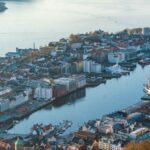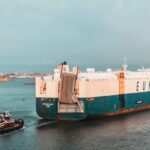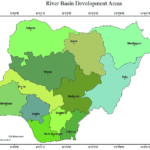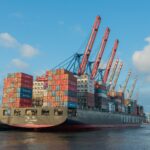T: +2347051423739
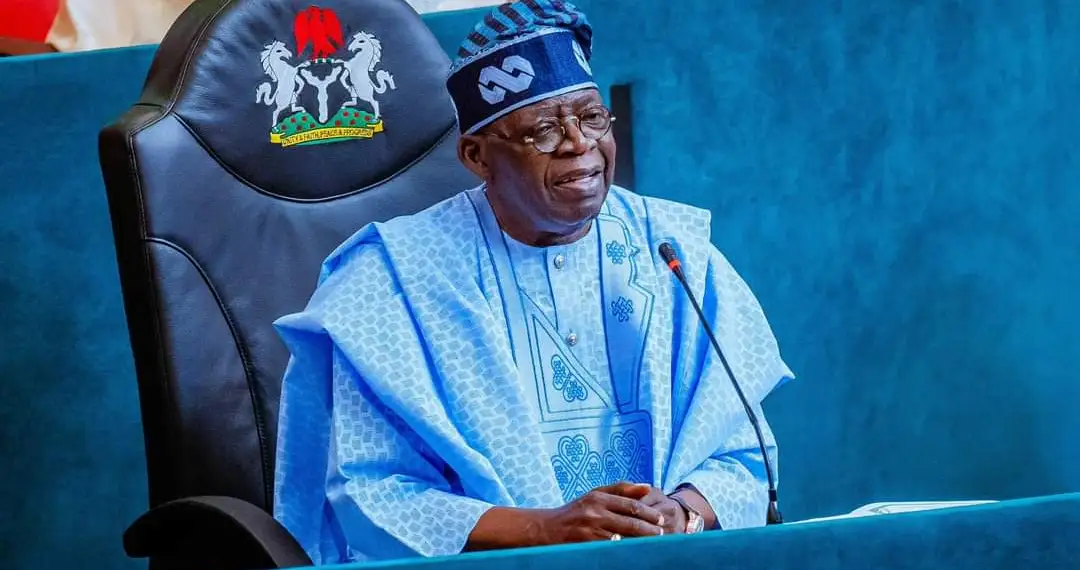
TINUBU GOVERNMENT ECONOMIC AGENDA AND A NIGERIAN BLUE ECONOMY
The keyword in the next government’s economic agenda must be – dynamic. It must be bold, it must be transparent, demonstrable enough to be believable to give hope to a traumatized population. It must inspire hope that has been conspicuously absent even despite the election in a people that cannot see a future for themselves and their children.
These are some of the challenges confronting the next government – intractable
and complex; as a whole it is the economy, in parts it’s the absence of security, the
state of public infrastructure, unemployment, productivity, the failure of the
education system, concentration of power at the Centre, cost of governance and
lack of trust and transparency in public institutions. Due to decades of endemic
neglect, painful collapse of the hinges of public institutions and in effect the state,
these challenges are urgent and existential.
The next government must deal with the long running debate of national security
architecture. Each state must be responsible for the internal security of their state
with each having a police supervisory board made up of appointed citizens with
term limit. This arrangement does not preclude the necessity of a federal security
agency that would work to support the state police if and when necessary.
Furthermore, apart from the low level crimes committed by individuals and
criminals routinely expected to be dealt with by the police there are two hot spots
within the Nigeria federation that are major security concern that have been going
on for years – in the North East and the South East. The former could end as soon
as the military are able to defeat the bandit perpetrating it. In the other hand, the
situation in the South East is a deliberate concerted effort by certain groups within
and outside the country to undermine the integrity of the country that is being
done through civil disobedience, criminal destruction of public property, killing,
kidnapping and banditry. The next government must find a solution to this as it
directly affects the image of the country and economic well being of the innocent
citizens in the area. The presidential candidate of the Labour Party Mr. Peter Obi
with the almost total mandate of the people of the region could be uniquely useful here with the understanding that practical devolution of some of the power
currently monopolized in Abuja could be a catalyst for resolving long standing
grievances here for the benefit of the entirety.
Campaign for devolution of power across the federation has been a staple of
politicians since 1963 with the Constitution allowing limited authority for the unit
states to make decisions that could positively affect the lives of their citizens. This
must change in a manner that will allow clusters of states acting with the primary
objective of economic integration in a region operate an economic community with
economic cooperation that could facilitate joint investments in public
infrastructure like roads, rails and more sustainable management of the
environment. It’s for example understandable why the federal government should
construct a east west road (Lagos – Calabar) but it’s less clear a road between Akure
in Ondo State and Ado Ekiti in Ekiti State as in so many similar places should be a
federal assignment.
The next government must confront the issue of education in Nigeria and
demonstrate it is aware of the IMPORTANCE of education from the primary school
level to the university. There must be an enforced national standard to ensure the
school system is able to produce the workforce needed for economic growth and
productivity. Until recently, it was my belief the disproportionate inability of the
northern part of the country to contribute to the graduate working population was
a religious issue until I got to know what the United Arab Emirates have
accomplished in technological breakthrough and scientific research. This is despite
their more strict sharia interpretation of Islam. What is happening in the Northern
part of the country is a crime. There is no reason not to enforce a national standard
and urgently consider adopting either the South Korean or German Educational
system that could help transform our educational and technological advancement
within a very short time.
Power has been the bane of the Nigerian state for as long as memory would serve
and continue to be a scourge to businesses, life itself and way of of life. In recent
past there was the failed effort to privatize what till then was one of the few
avenues government could ameliorate the cost of living of the people. The process has been an unmitigated disaster. The next government should terminate the
existing arrangement and reconstitute the national power distribution authority
NEPA. It should specifically invite technical partnership from the Scandinavian
countries or South Korea. It should through a special purpose vehicle arrange for
Issuance of bond to raise the capital it would require to build a state of the art
power generation and distribution company that could then be sold to the public
at a later date.
The next government must also deal with the issue of transparency and
accountability in government. The culture of the government as a legalized criminal
enterprise must stop. This in turn leads to the issue of cost of governance. Does the
country actually need a bicameral legislatures and is there really a need for full time
law makers? In the face of ever dwindling resources the secrecy surrounding the
salaries, constituency allocations and benefits of members of legislatures at both
the states and national level is an affront to decency. The next government must
see this as a priority by bringing transparency to government while tackling these
related issues.
There is unfortunately a paucity of reliable data to sufficiently analyze the state of
the Nigeria economy except for the currency the Naira which mirrors the
rampaging menace of inflation over many years through successive government
economic somersaults. However, a population of a quarter of a billion people offer
the new government the enormous market that with good planning and
monitoring necessary for sustained economic stability could transform the fortune
of this country.
With all that is wrong with the Nigeria economy the realization of absence of
stability at the Centre of the country’s monetary system is sad to say the least as
exposed by the recent calamitous attempt to introduce new Naira notes. The
episode is of an organization without responsible management structure. For a long
time, I have always felt a necessity for engagement of some of the world’s retired,
renowned expatriate experts as in-house specialists in some of our critical
institutions to help with procedures, professionalism, ethics – the Central Bank of
Nigeria, the Supreme Court, the Nigeria Police Headquarters are prime candidates. These distinguished individuals would be observers offering opinions on due
process, ethical issues for a period of up to ten years as the case may be until they
are needed no more and we are able to run the ship.
The administration of the Central Bank of Nigeria as a matter of urgency must be
revamped to meet the challenges of the time. Over the last few decades it has
demonstrated absolute incompetence on issues of micro economic decisions and
contributed in no small measure to the state of the country today. A collegiate
executive board with voting power needs to be introduced with term limit with
more transparency decision making process. This is a clear way to improve the
regulatory environment in order to increase the level of foreign investment in the
economy.
Finally, the next government must embrace a Nigerian Blue as a vehicle for
comprehensive solutions to issues of unemployment, infrastructural development
sustainability of the environment, renewable energy and sufficiency.
Unfortunately, the outgoing administration made a rather late entry into the
conversation with the constitution of the Expanded Partnership Committee on Blue
Economy in Nigeria under the Chairmanship of the Vice President early last year
that would now need to be reinvigorated by the next government. A Nigerian Blue
Economy is projected by experts to exponentially quadruple the GDP in the
medium term four fold from the current 407 billion dollar to 1.5 trillion USD.
From construction of new ports along the Atlantic Ocean coastline, shipping,
ship building, modern fishing, aquaculture, Oyster farming, ocean mining,
biotechnology, and coastal tourism. A Nigeria Blue Economy would generate
millions of employment, create new entrepreneurs and provide the platform for
an integrated transportation infrastructure from the coast inward. And would
be funded with special purpose vehicle only the incorporation of a Nigerian Blue
Economy can permit.
Soji Adeleye
soji.adeleye@hotmail.com
alfecity
Chief Executive Officer, Alfe City Institution

